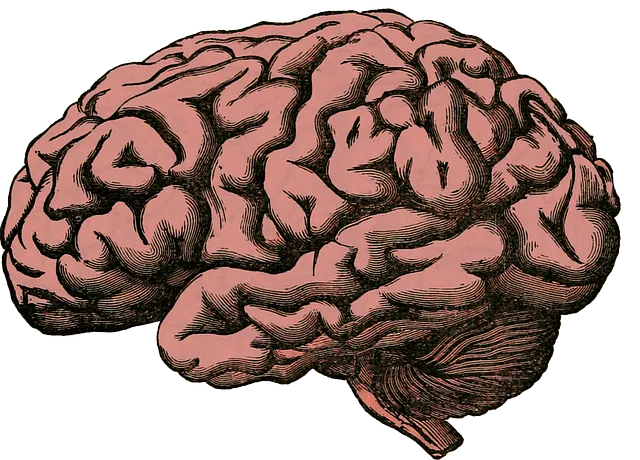The Greenwood Village Kaiser Permanente mental health facility prioritizes cultural sensitivity, recognizing diverse backgrounds as key to effective treatment. Staff receive comprehensive training in emotional well-being promotion and mental wellness coaching to address cultural barriers and tailor support. They integrate risk management planning, language access services, and resilience building techniques into patient care, empowering individuals from varied cultures on their mental wellness journeys. This holistic approach fosters an inclusive environment where every patient feels respected and supported, leading to improved outcomes and stronger community relationships.
Cultural sensitivity is an essential aspect of delivering effective mental healthcare, especially in a diverse society. This article explores strategies to enhance cultural competency among mental health professionals, drawing from the innovative practices at the Greenwood Village Kaiser Permanente facility. We discuss the impact of cultural diversity on mental health care and present case studies demonstrating improved patient outcomes through inclusive approaches. By addressing barriers and implementing targeted training, healthcare providers can offer more personalized and accessible services.
- Understanding Cultural Diversity and Its Impact on Mental Health Care
- The Greenwood Village Kaiser Permanente Facility: A Model for Inclusive Practice
- Identifying and Overcoming Barriers to Culturally Sensitive Care
- Training and Education for Mental Health Professionals
- Enhancing Patient Outcomes through Cultural Competency
Understanding Cultural Diversity and Its Impact on Mental Health Care

In a diverse society like that of Greenwood Village, where individuals from various cultural backgrounds coexist, it’s essential to recognize how cultural diversity impacts mental healthcare practices. The Greenwood Village Kaiser Permanente mental health facility, for instance, serves a community rich in cultural heritage, each bringing unique perspectives and experiences that influence their approach to seeking help for mental well-being. Understanding these nuances is vital for providing effective care. Cultural sensitivity involves recognizing and appreciating the impact of one’s cultural identity on their thoughts, behaviors, and reactions to various situations, including experiences with mental health services.
Mental healthcare professionals play a crucial role in bridging the gap between diverse cultures and ensuring everyone receives tailored support. By embracing cultural diversity, these professionals can offer self-esteem improvement strategies that resonate with patients’ backgrounds. Moreover, they can provide crisis intervention guidance that respects individual cultural norms, fostering a safe environment for open communication. Additionally, integrating risk management planning into their practices helps professionals address potential cultural triggers or misunderstandings, ensuring a more inclusive and effective mental health care system for all.
The Greenwood Village Kaiser Permanente Facility: A Model for Inclusive Practice

The Greenwood Village Kaiser Permanente mental health facility stands as a beacon of inclusive practice, showcasing how cultural sensitivity can transform healthcare delivery. This facility prioritizes understanding and respecting patients’ diverse backgrounds, traditions, and beliefs, ensuring every individual receives care tailored to their unique needs. By integrating self-care practices that resonate across cultures, the center fosters an environment where emotional intelligence thrives.
Staff members at the Greenwood Village Kaiser Permanente are rigorously trained in conflict resolution techniques, enabling them to navigate sensitive situations with compassion and expertise. This approach not only enhances patient satisfaction but also promotes healing by addressing cultural barriers to care. The facility’s commitment to these inclusive practices has led to improved outcomes and stronger relationships between healthcare providers and the communities they serve.
Identifying and Overcoming Barriers to Culturally Sensitive Care

Identifying and overcoming barriers to culturally sensitive care is a critical aspect of mental healthcare practice, especially at facilities like the Greenwood Village Kaiser Permanente mental health facility. Understanding cultural nuances is essential for building trust and ensuring effective treatment among diverse patient populations. One significant barrier is lack of cultural competency training among healthcare providers, which can lead to misunderstandings or misjudgments about a patient’s needs, beliefs, and behaviors. Addressing this gap through comprehensive training programs focused on Emotional Well-being Promotion Techniques and Mental Wellness Coaching Programs Development can significantly enhance care delivery.
Another hurdle is language and communication differences, which may impede open dialogue between patients and providers. Implementing language access services, such as interpreters or multilingual resources, is crucial for facilitating clear communication. Additionally, incorporating Resilience Building techniques into treatment plans can empower patients from diverse cultural backgrounds to navigate challenges and promote their emotional well-being. By proactively addressing these barriers, mental health facilities like Greenwood Village Kaiser Permanente can foster inclusive environments that support every patient’s journey towards mental wellness.
Training and Education for Mental Health Professionals

Mental health professionals at the Greenwood Village Kaiser Permanente facility understand that providing effective care requires more than just clinical expertise; it demands a deep appreciation for cultural sensitivity in mental healthcare practice. Training and education play a pivotal role in equipping practitioners with the skills to navigate diverse cultural backgrounds, beliefs, and experiences of their patients. This holistic approach ensures that individuals from various communities, including those who might be part of the LGBTQ+ population or have unique ethnic heritages, receive tailored trauma support services.
The facility’s commitment to fostering a culturally sensitive environment is evident in its comprehensive training programs and Community Outreach Program Implementation. These initiatives focus on raising awareness about cultural nuances related to mental health, breaking down barriers, and promoting inclusive practices. By integrating these educational opportunities, the mental health facility aims to revolutionize care, ensuring that every patient feels seen, heard, and respected throughout their journey towards healing and wellness.
Enhancing Patient Outcomes through Cultural Competency

At Greenwood Village Kaiser Permanente mental health facility, cultural competency is not just a buzzword; it’s a cornerstone of patient care. By understanding and appreciating the diverse cultural backgrounds of our patients, we can significantly enhance their treatment outcomes. This involves tailoring therapeutic approaches to resonate with individual beliefs, values, and experiences. For instance, incorporating cultural elements into therapy sessions has shown promise in improving engagement and adherence among diverse populations.
Beyond this, fostering compassion cultivation practices within our facility ensures that healthcare providers are equipped to address the unique challenges faced by culturally diverse individuals. This includes implementing community outreach programs that bridge the gap between mental health services and various communities, thereby preventing burnout among staff and promoting a more inclusive environment. Such initiatives not only benefit patients but also contribute to the overall well-being of our community as a whole.
Cultural sensitivity in mental healthcare is not just a best practice—it’s essential for providing effective, equitable treatment. As evidenced by the success of the Greenwood Village Kaiser Permanente mental health facility, prioritizing cultural diversity enhances patient outcomes and creates an inclusive environment. By identifying and overcoming barriers, implementing comprehensive training, and fostering cultural competency, mental health professionals can better serve a diverse range of individuals, ensuring that everyone receives care tailored to their unique needs and backgrounds. This approach not only improves individual healing but also strengthens the overall tapestry of mental healthcare services.

